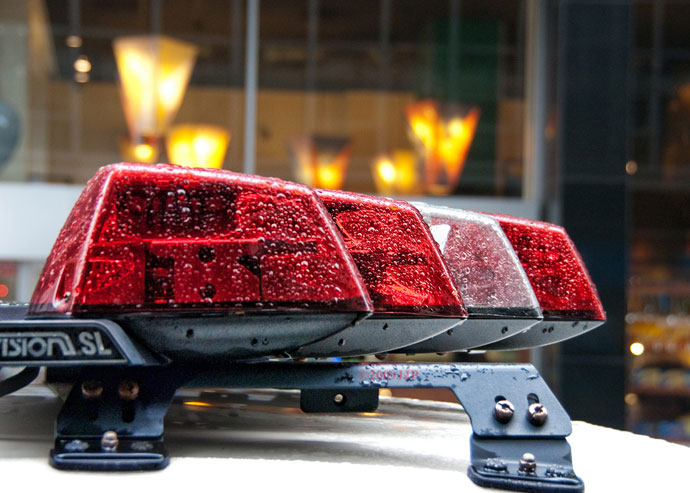Court Says It’s OK To Give Cops The Finger

Image via Flickr/ Singing With Light
In a momentous decision for American citizens who enjoy flipping the bird to cops, a federal court has ruled that a police officer can’t pull someone over for showing them their middle finger.
The ruling, issued by the U.S. Court of Appeals for the 2nd Circuit in 2013, states that the “ancient gesture of insult is not the basis for a reasonable suspicion of a traffic violation or impending criminal activity… Surely no passenger planning some wrongful conduct toward another occupant of an automobile would call attention to himself by giving the finger to a police officer.”
According to Counter Current News, this landmark ruling occurred after one John Swartz was arrested in May 2006 for flipping off a police officer using a radar device at an intersection. Swartz — who was not driving the car — was reportedly charged with disorderly conduct for his deployment of the middle finger; the officers who arrested him claimed they had probable cause, saying they thought Swartz was trying to get their attention.
Swartz and his wife, Judy Mayton-Swartz, later decided to file suit against the two officers who arrested him.
In July 2011, says Counter Current, a federal judge in the Northern District of New York ruled in favor of the arresting officers. However, the Court of Appeals ruled against that decision, saying that Swartz was perfectly within his rights to flip off a cop.
An officer “may not lawfully order someone to stop unless the officer reasonably suspects the person of being engaged in illegal activity,” says the ruling, adding that “Perhaps there is a police officer somewhere who would interpret an automobile passenger’s giving him the finger as a signal of distress, creating a suspicion that something occurring in the automobile warranted investigation. And perhaps that interpretation is what prompted [the officer] to act, as he claims. But the nearly universal recognition that this gesture is an insult deprives such an interpretation of reasonableness.”
Ultimately, the ruling concludes that even if there were some motorist somewhere who for some reason decided that giving a police officer the finger was a good way to ask for help, “it is far more consistent with all citizens’ protection against improper police apprehension to leave that highly unlikely signal without a response than to lend judicial approval to the stopping of every vehicle from which a passenger makes that gesture.” In other words, your Constitutional right to give someone the finger is protected.









































